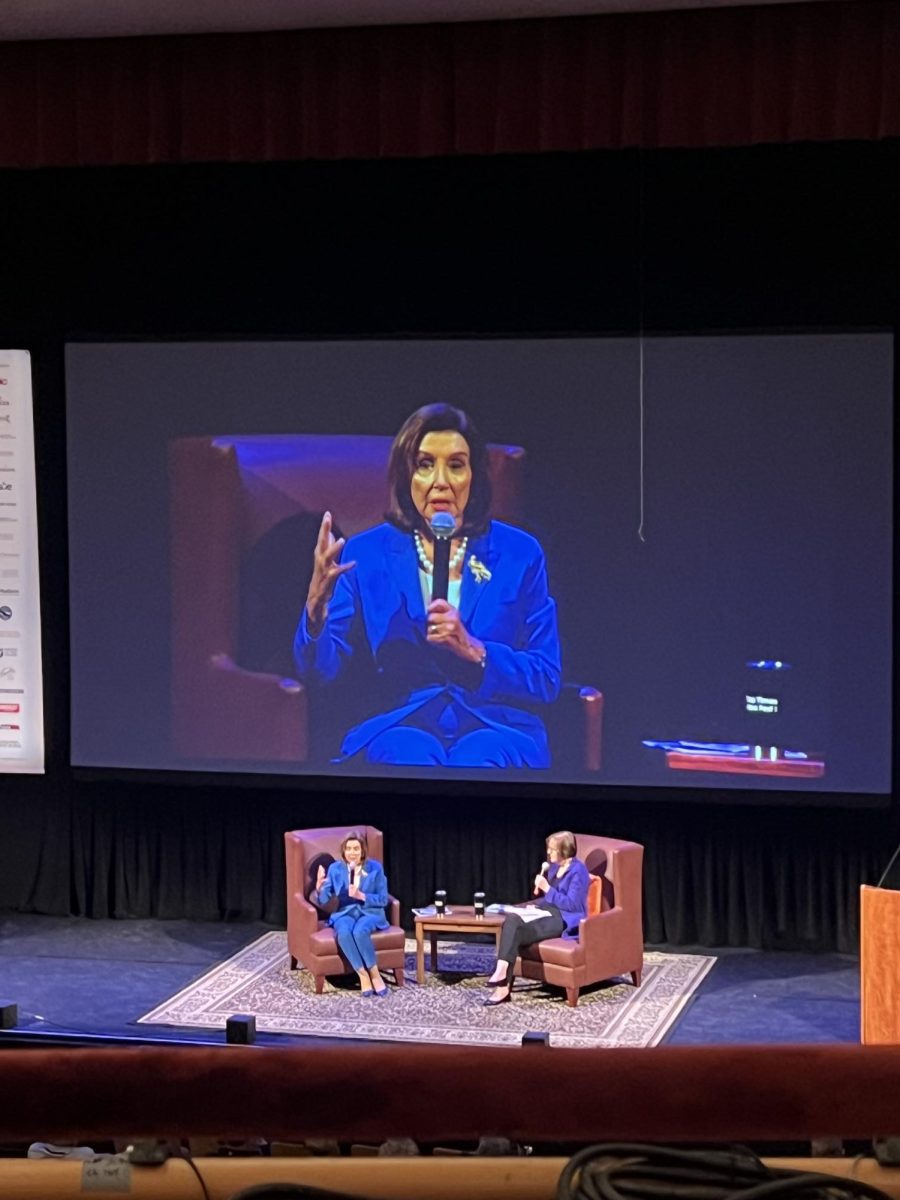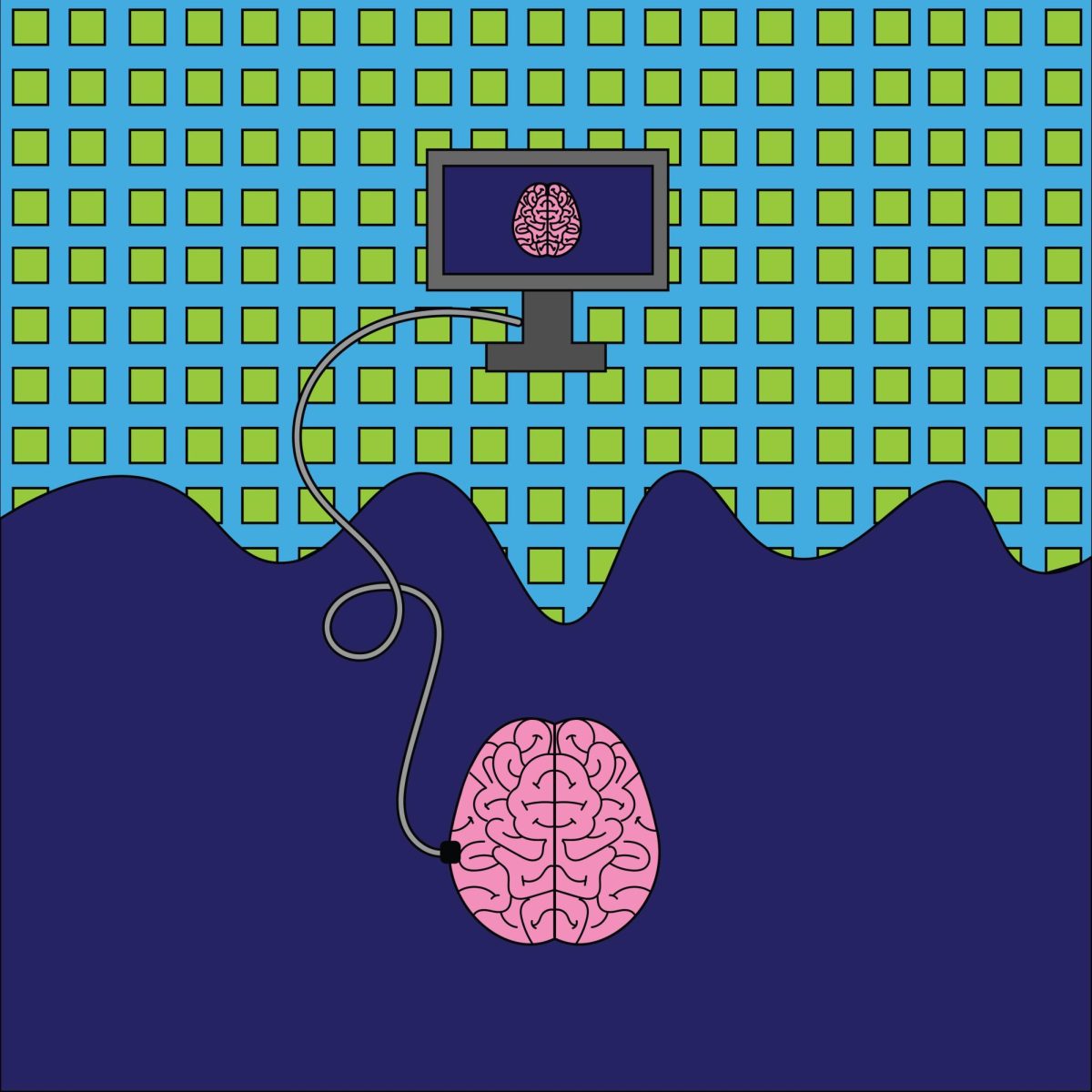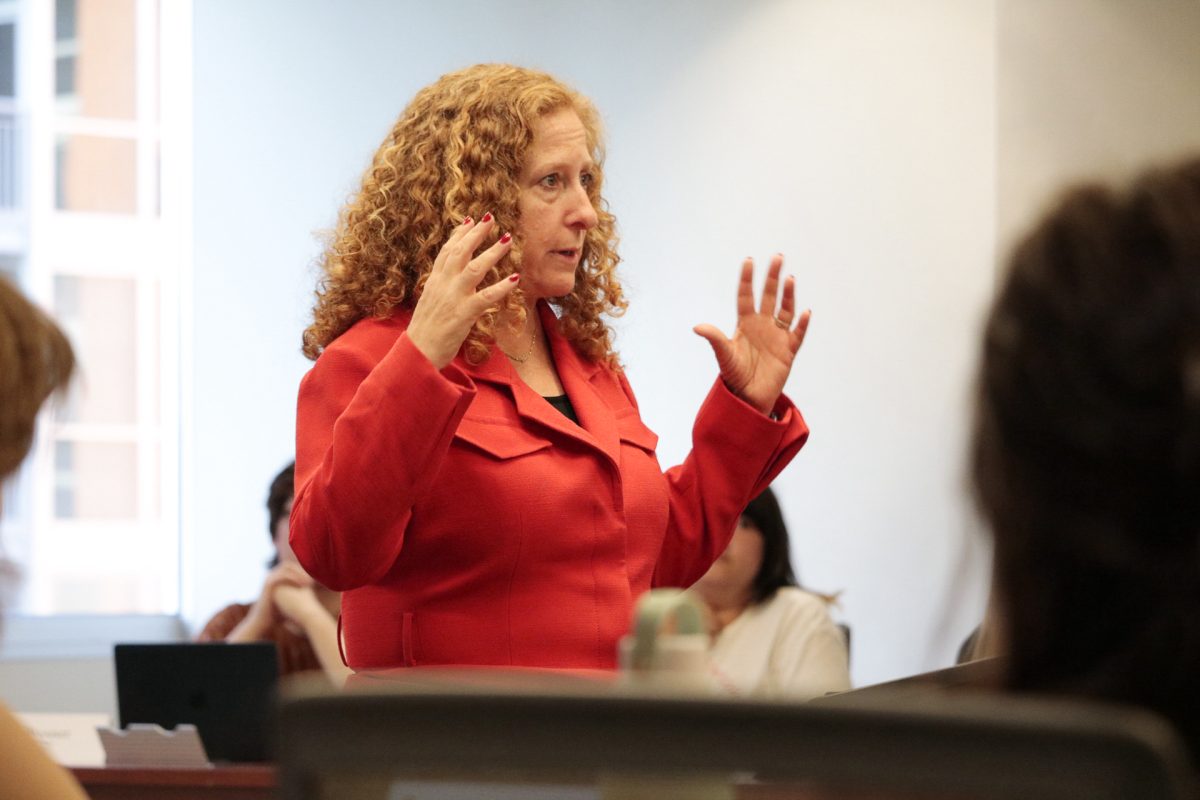The University of Wisconsin's Student Services Finance Committee denied recognition to the UW Roman Catholic Foundation Sept. 26 in a 6-6 vote for a second time after the group had appealed the first decision a week earlier.
The decision follows in a line of denials issued to Christian student groups by student-funding groups around the country. In the past eight months, more than eight universities have been involved in similar cases, and often universities have returned recognition to groups after lengthy legal battles.
In an effort to retain student funding, UWRCF sued Associated Students of Madison in Student Judiciary. During Wednesday's hearings, students' debate over the issue reflected a similar debate, which has echoed throughout the nation's universities and university student-funding organizations about what comes first — the First Amendment or nondiscrimination.
UWRCF's loss of recognition
Despite UWRCF's presence on the UW campus for nearly 100 years, the group's existence was never questioned.
"Basically, there was some concern that their policies were not inclusive to all students," said SSFC member and Associated Students of Madison finance chair Jennifer Knox.
SSFC denied UWRCF's recognition for three separate reasons, taken from a set of 13 criteria established to guide eligibility requirements. Among those, SSFC said UWRCF had failed to provide properly written governing documents and failed to complete its eligibility application correctly. However, many SSFC members felt UWRCF had failed to comply with Criteria 12, demanding that the organization or program strictly adhere to ASM bylaws, the ASM Constitution, UW System Policy, state law and federal law.
"The committee felt that with the organization mentioning only Roman Catholics in their governing documents, that they were in violation of UW System policy which would deem the language in the governing documents to be discriminatory," an official SSFC document explained.
Still, UWRCF members argued they have never discriminated against students, nor have they ever intended to.
"We're really open to anyone who wants to come in," said UWRCF senior operations officer Beth Czarnecki.
In response, Czarnecki said the group had changed its bylaws to allow for all students, rather than just Roman Catholics. However, the new changes to the bylaws did not take effect immediately, and UWRCF was not able to show it had made the changes. Czarnecki said SSFC members were instructed to evaluate the new information as they wished, though they viewed the old bylaws at the time of the meeting.
Still, SSFC Vice Chair Eric Saar said the group was not denied funding because of nondiscrimination issues.
"The committee was pretty convinced they weren't discriminatory, which is why a lot of them changed their votes [during the second SSFC meeting]," Saar said.
Rather, SSFC members were more concerned with the "accuracy" of UWRCF's application.
"They said that they required dues and they terminated membership if they didn't pay dues, that information on that application was not accurate with the practices at the first meeting," Saar said. However, Saar added UWRCF had changed this practice, as well.
Nondiscrimination policy vs. the First Amendment
UW is not the first university to grapple with the conflict, which has arisen between universities' nondiscrimination policies and First Amendment rights granted by the U.S. Constitution.
SSFC members argued their responsibility was to defend the university's nondiscrimination policy.
"Groups that are SSFC-funded are not allowed to be exclusive," Knox said. "They have to be open to all students. That's just a policy with segregated fees."
However, many argue UW's nondiscrimination policy overlooks First Amendment rights, which grant freedom of association, since a group's rights are inherently linked to their right of exclusion.
"Any rule that says you must allow your membership to be open to everyone violates free association," said Foundation for Individual Rights in Education President David French. "The nondiscrimination policy cannot trump the First Amendment."
In late January, Ohio State administrators were forced to return recognition to the Christian Legal Society despite the group's policy of denying homosexuals membership.
Since then, four other major universities have opened similar cases with Christian groups around the country. Arizona State University-Tempe, University of California's Hastings College of Law, University of North Carolina-Chapel Hill and Pennsylvania State University-University Park have all been involved.
French said Philadelphia-based FIRE has been involved in at least 60 cases around the country. The group aims to help protect the constitutional rights of university and college members around the country.
Though UWRCF does not currently discriminate against students, French argued the group certainly has the right to.
"There's a difference between belief and status," French said. "What universities are continually and disingenuously doing is conflating the two."
Similarly, French noted, the Ku Klux Klan could quite possibly have a student group; however, the likelihood of allowing blacks or other minorities to join would be slim.
Czarnecki said it was difficult to explain that UWRCF had the right to exclude.
"We're a Catholic group and we're not going to hide that. To just kind of say you can change yourself and become like everyone else doesn't seem right," Czarnecki said. "It is extremely frustrating that we couldn't get this point across."
In addition, Czarnecki noted the group has never had a complaint filed against it with regard to discrimination.
Still, UW political science professor Donald Downs said the situation was not so clear, since funding was attached.
"With funding strings attached, because you have competing university policy, it's not a purely black-and-white situation," Downs said.
Still, Downs said freedom of association issues certainly also play a major role.
"Say a racial justice group has to allow Klansmen to enter, there's definitely potential freedom of association problem here," Downs said.
Both French and Downs said students and administrators have been poorly educated in First Amendment rights.
If the results of Wednesday's ASM Student Judiciary hearing are negative for UWRCF, Czarnecki said the group would pursue this alternative argument.
Southworth
In 2000, the U.S. Supreme Court upheld the right of student groups to distribute funds regardless of preference, as long as funding decisions overlooked viewpoint. In The Board of Regents of the University of Wisconsin System v. Southworth, et al, "viewpoint neutrality" was established at UW and elsewhere when the high court recognized the university's need to maintain its marketplace of ideas.
However, whether viewpoint neutrality was properly used for UWRCF has come into question.
SSFC member Zach Frey said governing documents had been overlooked for most groups until UWRCF.
"I just think there were some groups who had similar situations that the committee looked at differently," Frey said.
Still, Frey noted SSFC members had remained neutral throughout the process.
"I don't think this has anything to do with Catholic," Frey said. "At least two of the SSFC members who voted against were themselves Catholic."
However, if SSFC members had analyzed UWRCF differently from other organizations, they may have breached viewpoint neutrality, some contend.
"This is a prima facie case of viewpoint discrimination in application," Downs said.
"That creates the presumption of malice. Why would they only apply this to this group and not other groups?"
Still, SSFC chair Rachelle Stone said in an e-mail that SSFC members were trained in the concept of viewpoint neutrality.
"There is a training that SSFC members have to go through in August and, if people are confused about VPN, there are multiple sources inside and outside of SSFC to explain VPN," Stone said.












